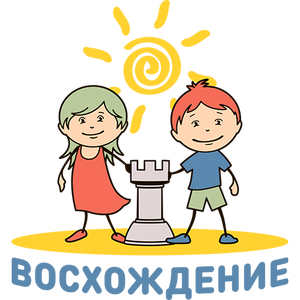4 December 2015
Turn Off the Lights, or Becoming a Romantic Against Your Own Will
The final stage of the Russian Women’s Chess Cup in Yevpatoria in the review of Darya Trapeznikova.
The first A.V. Suvorov Memorial was held in Yevpatoria on November 19-30 at the premises of the National Paralympic and Deafolympic Training Center. The festival program list featured the Russian Children’s Cup stage, the open tournament and the Russian Women’s Cup stage, and it is the latter that will be mostly focused upon in this article.
Why is it that the tournament was named after the great military leader? It's quite simple: Alexander Vasiljevich is well known for his heroic deeds in the Crimea in the second half of the XVIII century. By moving his headquarters to the island in May 1778, Suvorov successfully put off the invasion attempts by the Turkish army on the Crimean coast. In addition, Suvorov was not only a brilliant military man, but a talented administrative manager at that. In the same 1778 the Europe was struck by the plague epidemic; due to the strictest quarantine measures imposed by the general, Yevpatoria (named Gezlev at that time) succeeded in escaping the terrible epidemic. The grateful Crimean residents revere the memory of the renowned general, and dedicated a chess tournament to his memory for this reason.
It seemed that such a dominant name bolstered by the significance of the territory so vital for Russia would doom this event to success, but the ambitious organizers’ plans were not destined to materialize. All in all, it was an extremely small quantity of participants that finally reached Yevpatoriya. This is perhaps linked to the approaching end of the year and the leftover financing principle (if any), which, coupled with the lack of the tournament motivation to fight for qualification into the Cup finals, or something else maybe, might have had its decisive say in the final run. Anyway, the start of the Russian Women's Cup gathered 19 participants. The rating favorites were Marina Guseva, Daria Charochkina and Alina Bivol. On the other hand, one might say that their superior position in the start list was of a rather arbitrary nature: 10 out of 19 participants featured above 2200 ratings, which promised tough fighting.
With this in mind, the lovely ladies started off their tournament marathon, which would have been nothing of the ordinary had everything proceeded as initially planned. There is no way we can bypass and shy from describing the events that have affected not only the course of the tournament, but the lives of all Crimeans as well. At around midnight between the second and third rounds the power lights started blinking treacherously, and then went on to disappear entirely. No special meaning was attached to this until familiarizing with the news feed that came out next morning. As it turned out, the power lines had been blasted and the entire peninsula plunged into complete blackout. As the troubleshooting was supposed to last no more than three days, the hope was still alive that the tournament would resume to a normal schedule. Much to the joy of the participants, the Paralympic center was once again hooked up to electricity in the afternoon prior to the start of the third round; however, starting round four on time was no longer possible. And who knows how the tournament would have evolved from that point on if not for a day off that the organizers had had at their disposal. By the willful decision of the chief arbiter the fourth round was postponed to 10 a.m. next day, whereas all of the remaining rounds were scheduled for 10.30 a.m., as it turned out that it was dark outside at 10 a.m. yet.
The participants found themselves in really extreme conditions: at first days the power was served only a few hours at night, and then the power outage schedule was established according to which the power was regularly on from 5 to 6 and from 11 to 12 o’clock, 4 times a day. However, the central heating and the hot water were gone, so that I would like wish strong health to all those who was destined to pass through this challenged! But you can find some positive moments in this as well as all the participants had no lack of romantic candlelight dinners, whereas the tournament was carried on in the atmosphere of unity because problems have a tendency to unite people indeed. In the absence of power and Internet much less time is spent in front of the monitors and a lot more in the real-world communication with other people. So, those of you who did not go to the Crimea missed a really unique, one-of-a-kind event.

The participants enjoying a romantic dinner
Nevertheless, a few words need to be said about the battles that took place on the black and white squares. The favorites started shedding points as soon as the starting rounds: Alexandra Zherebtsova defeated Daria Charochkina, while Alina Bivol shared the point with the young hope of the Crimean chess Margarita Potapova. All in all, the girls have demonstrated a remarkable level of persistence: each day had its one or two five-hour games played, and it was not always happening in the encounters between equally strong opponents. Following the completion of round three it was only Darya Pustovoitova who succeeded in giving nothing away to her opponents, whereas after that none managed to stay loss-free. By round six the lead was overtaken by Evgenija Ovod, who, despite being inflicted a wound in the second round by Dina Belenkaya, went on to defeat all others. The tournament finish was handled by Evgenija in a no less confident manner and she deservedly took the first place with 7 points on her score.
No laughing fight revolved around the rest of the prize places, the candidates numbering almost as many as half of the tournament participants. Accordingly, four contenders finished up sharing equal amount of 6 points. The Buchholz tie-breaker landed Dina Drozdova the second place, while the top three was closed by Alina Bivol, this success allowing her to pry her way into the Cup finals. Dina Belenkaya and Marina Guseva ended up falling outside the circle of winners. However, there certainly were no losers in this tournament as each participant held up unfazed through all hardships.
I would like to thank the organizers who did their best to keep the tournament on track, ranging from procuring participants with candles to attempting to contact the Minister of Energy. Several guided tours have been organized in order to brighten up our pastime as much as possible. Firstly, all those willing to do so visited the Museum of the Crimean War, dedicated to the battles of 1853-1856 between the Russian Empire on the one hand, and a coalition of British, French, and Ottoman Empires and the Kingdom of Sardinia on the other hand; this war was initiated with the purpose of ousting Russia from the Black Sea coast of the Caucasus and the Transcaucasus regions.
Further on, the circle of close friends, thirsty for deeper knowledge of the cultural background, went to the local history museum, where they could get to know more about the flora and fauna of the peninsula, as well as about the customs and the way of life of the peoples that used to inhabit it since ancient times and up to the modern period. This was not the end of the entertainment program. A couple of days later the workers of the chess industry were able to glance into the underwater world by visiting the Aquarium. Countless types of amazing fish and amphibians left nobody’s feelings untouched.
Visiting the old part of Yevpatoria and a guided tour called the "Little Jerusalem" were the "icing on the cake" of the cultural adaptation program. The tour is called so owing to the temples of seven world religions being sited almost alongside each other: a mosque, an Orthodox cathedral, three kenesas, two synagogues, a Dervish monastery, a prayer house of the Krymchaks and an Armenian Church. You can perhaps safely say that for the majority of female players this tournament has so far proved the most eventful one throughout their careers and will certainly live long in their memories!
Winners of the Russian Women’s Cup: Alina Bivol, Evgenija Ovod and Dina Drozdova
























